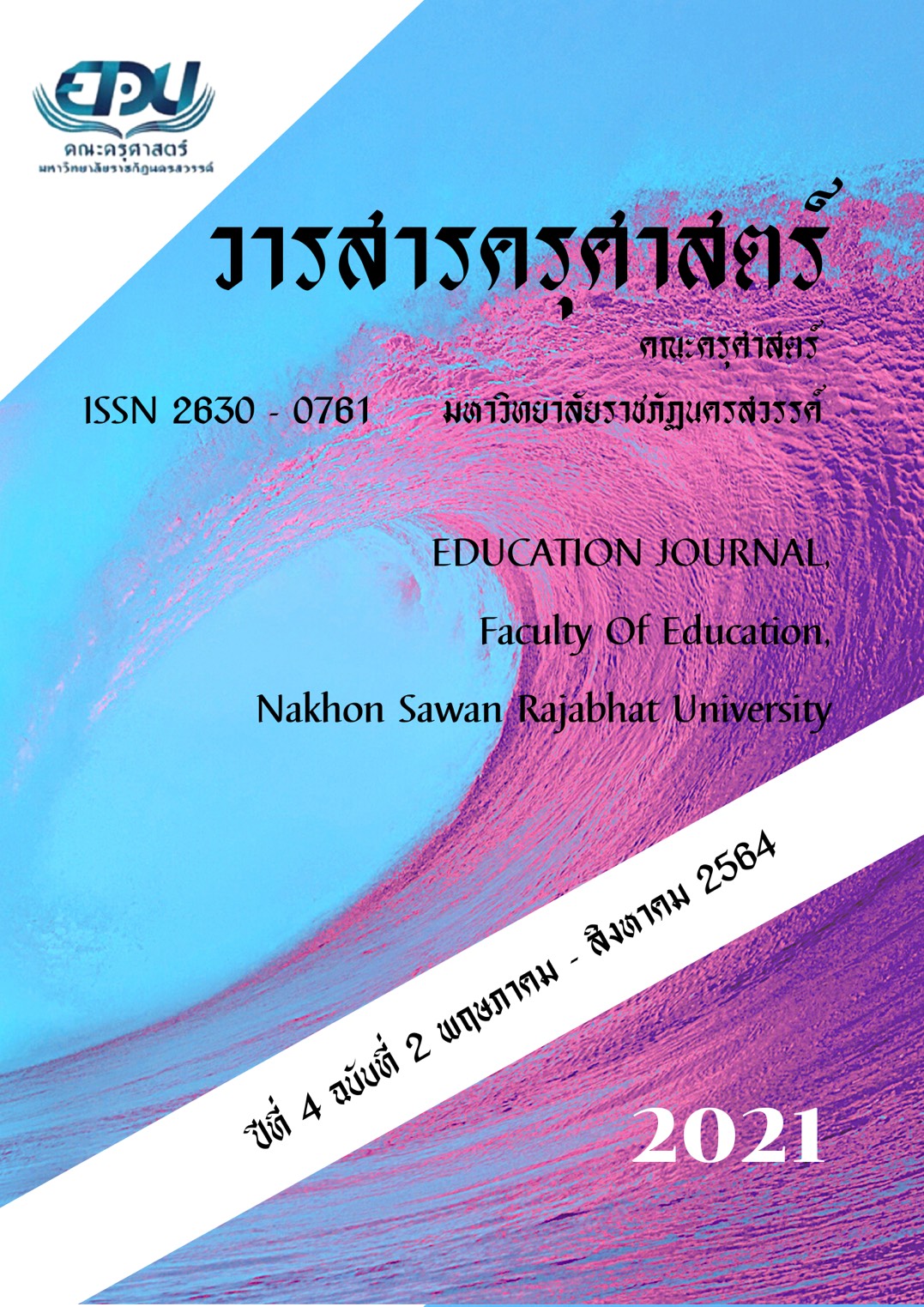สัญชาติ สถานภาพ การคัดแบ่ง : การครอบงำทางภาษาในการสอนภาษาอังกฤษ
Main Article Content
บทคัดย่อ
ผู้ที่อยู่ในแวดวงภาษาอาจเคยได้ยินประโยคที่ว่าการจะเรียนภาษาใดก็ตามถ้าเรียนกับเจ้าของภาษาจะได้ผลลัพธ์ที่ดีที่สุดถึงแม้จะมีค่าใช้จ่ายค่อนข้างสูงแต่กลับมองว่ามันเป็นการลงทุนที่คุ้มค่า คำว่าเจ้าของภาษา คือการสร้างอำนาจ ความได้เปรียบ และเปิดโอกาสการแสวงหาผลประโยชน์ของชาติตะวันตก เฉกเช่นความเชื่อที่ว่า การเรียนภาษาอังกฤษควรเรียนกับเจ้าของภาษาโดยตรงจึงจะได้ประสิทธิภาพมากที่สุดเป็นคำกล่าวที่แฝงการครอบงำทางความคิดอย่างแยบยลคือมายาคติที่ลดทอนกดทับคุณค่าในตัวบุคคล โดยเฉพาะครูผู้สอนภาษาที่ไม่ใช่เจ้าของภาษา จึงเห็นได้ชัดว่า การสอนภาษาอังกฤษโดยให้ความสำคัญตาม อัตลักษณ์ที่เจ้าของภาษาใช้ ได้ส่งผลในแง่ลบต่อผู้ใช้ภาษาอังกฤษด้วยเหตุที่ว่า พวกเขาเหล่านั้นไม่ได้ใช้ภาษาอังกฤษในแบบที่เจ้าของภาษาใช้กลับกลายเป็นการเสียโอกาสในการพัฒนาความรู้ภาษาอังกฤษในแบบที่ควรจะเป็น ตัดโอกาสครูผู้สอนที่มีประสิทธิภาพเพียงเพราะพวกเขาไม่ใช่เจ้าของภาษา อาการลุ่มหลงเจ้าของภาษาคือความล้มเหลวในกระบวนการเรียนการสอนภาษาอังกฤษ บทความนี้ต้องการชี้ให้เห็นถึงความล้มเหลวในการเรียนการสอนภาษาอังกฤษในประเทศไทย ผ่านกระบวนการครอบงำทางภาษาทั้งสามด้านได้แก่ สัญชาติ สถานภาพ และการคัดแบ่ง
Downloads
Article Details

อนุญาตภายใต้เงื่อนไข Creative Commons Attribution-NonCommercial-NoDerivatives 4.0 International License.
เอกสารอ้างอิง
พงศกร เมธีธรรม. (2560). ภาษาอังกฤษ: มายาคติ อำนาจ และการครอบงำ (พิมพ์ครั้งที่ 1). พิษณุโลก: สำนักพิมพ์ มหาวิทยาลัยนเรศวร.
ไพสิฐ บริบูรณ์. (2554). การสอนภาษาอังกฤษในประเทศไทย : การปรับเปลี่ยนกระบวนทัศน์จากภาษาอังกฤษ
ในฐานะภาษาต่างประเทศสู่ภาษาอังกฤษในฐานะภาษานานาชาติ. วารสารมหาวิทยาลัยราชภัฏสกลนคร,
3(6), 2-11.
ไพสิฐ บริบูรณ์. (2554). ภาษา อุดมการณ์ และการครอบงำ: ปัญหาการสอนภาษาอังกฤษในประเทศไทย
และแนวทางแก้ไข. สงขลานครินทร์ ฉบับสังคมศาตร์และมนุษยศาตร์, 17(6), 23-59.
ศิตา เยี่ยมขันติถาวร. (2557) เปลี่ยนมุมมองใหม่เพื่อพัฒนาภาษาอังกฤษเพื่อการสื่อสาร. วารสารปัญญาภิวัฒน์,
5 (ฉบับพิเศษ), 208-227.
อัจฉราวรรณ บุรีภักดี. (2556). ภาษา อำนาจ หรือ ความเป็นอื่นผ่านเรื่องเล่ารอบรั้วโรงเรียน.
มนุษยศาตร์สังคมศาตร์, 30(2), 203-216.
Baker, W. (2012). English as a Lingua Franca in Thailand: Characterisations and Implications. English in Practice: Working Papers of the Centre for Global Englishes, 1(1), 18-27.
Bennui, P. (2017). Speaking Tinglish for Professional Communication: A Reflection of Thai
English Used by Tour Guides along the Andaman Sea. Silpakorn University Journal of
Social Science, Humanities, and Arts, 17(3), 233-266.
Cain, M. T. (2008). Do you Speak Global? : The Spread of English and the Implications for English
Language Teaching. Canadian Journal for New Scholars in Education, 1(1), 1-11.
Jindapitak, N. (2014). English Pronunciation Teacher Preference: Thai University English Learners’Views. International Technology, Education and Development Conference (4982-4991). Valencia. Spain. Retrieved from ftp://fs.libarts.psu.ac.th/research/sar/ผลงาน ตีพิมพ์%20proceedings/ภาษา/2-English%20pronunciation%20teacher%20preference.pdf
Kirkpatrick, A. (2010). English as a Lingua Franca in Asean (a multilingual model). Kindle
version. Retrieve from http:// www. amazon.com
Kongkerd, W. (2556). Teaching English in the Era of English Used as a Lingua Franca in Thailand.
วารสารนักบริหาร, 33(4), 3-12.
Mahboob, A., & Golden, R., (2013). Looking for Native Speakers of English: Discrimination in
English Language Teaching Job Advertisements. Voices in Asia Journal, 1(1), 72-81.
Mollin, S. (2006). Englsih as a Lingua Franca: A New Variety in the New Expanding Circle?. Nordic Journal of English Studies, (5), 41-57.
Prakaianurat, P., & Kangkun, P. (2018). Language Attitudes of Thai Working Adults toward Native and Non-Native English Varieties. Journal of Humanities Regular, 21(2), 92-111.
Rohmah, Z. (2005). English as a Global Language: Its historical past and its future.
Journal Bahasa & Seni 33 (1), 106-117.
Ruecker, T., & Ives, L. (2014). White Native Speakers Needed: The Rhetorical Construction of Privilege in Online teacher Recruitment Spaces. Race, Identity, and English Language Teaching - A Joint TESOL Quarterly and TESOL Journal, 49(4), 733-756.
Samaranayake, W., S. (2015). Influence of English as a Powerful instrument of Communication
in Thailand. International Journal of English and Education, 4(4), 93-106.
Subandowo, D. (2017). The Language Interference in English Speaking Skill for EFL Learners.
Advances in Social Science, Education and Humanities Research, 110, 204-208.
Suksiripakonchai, W., (2015). English as Lingua Franca and its Status in Thailand: Implications
for Teaching English Pronunciation. Journal of Asian Critical Education, 3, 5-11.
Suwanarak, K. (2010). Can Only Native English Speaking Teachers Teach Aural and
Oral Skills?. ABAC Journal, 30(2), 43-63.
Todd, W., R. (2006). The Myth of the Native Speaker as a Model of English Proficiency.
KMUTT Journal of Language Education, 8, (1-7).
Wannachotphawate, W. (2015). English Language Development Policy: Foreign Teacher,
Hegemony, and Inequality of Education in Thailand. Retrieve February 2, 2021,
form https://eric.ed.gov/?id=ED556354


